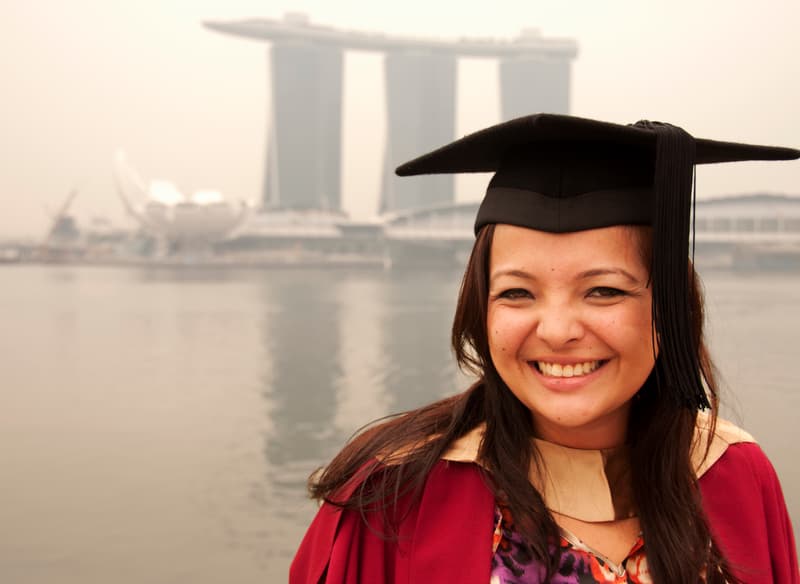Consultant - Qualitative Research on the RTU Framework
Manila
- Organization: WHO - World Health Organization
- Location: Manila
- Grade: Consultancy - International Consultant - Internationally recruited Contractors Agreement
-
Occupational Groups:
- Scientist and Researcher
- Closing Date: 2024-01-23
Purpose of the Consultancy
This consultancy aims to conduct qualitative research on the Regional Framework for Reaching the Unreached (2022-2030) to understand the challenges, opportunities and success stories of reaching the unreached (RTU) for ending and eliminating diseases in the Western Pacific Region.
Background
RTU is a global and regional health policy priority aligned with health-related SDGs by 2030. It is built on the principle of universality and aims to ensure that no one is left behind.
The Region has seen remarkable progress on important global and regional targets for HIV, TB, malaria, neglected tropical disease, polio, hepatitis B, and measles. However, ending and eliminating many of these endemic diseases continues to be challenging. This is mainly because health systems continue to miss significant numbers of people with these disease conditions in all countries – and not only in countries with weak health systems. In addition, inequalities in the social determinants of health, viz., income, education level, gender, ethnicity, and geographic location, cause inequitable access and health outcomes among different population groups across the Region. In recognizing that progress has not equally benefited all population groups in the Region, countries are now striving to achieve the ambitious global universal health care (UHC) targets and complete the business of preventing and eliminating morbidity, mortality, and disability caused by these diseases by 2030.
Countries must adopt an integrated systems approach to reach the unreached and ensure universal health care. They need to use this approach to strengthen the three core elements of primary health care, viz., health systems and services, community and people empowerment and multi-sectoral actions to address socio-economic determinants and barriers. These three core elements are the same as the three priority action areas for reaching the unreached. To do all this, it is essential to identify the unreached populations and the reasons for not reaching them. In addition, we must identify and use local, cost-effective ‘grounds up’ solutions for that purpose.
Output and Deliverables
Output 1: Plan the consultancy
Deliverable 1.1. An Inception Report with an initial review of literature, proposed methodology, and a Gantt chart on the work planned to be done during the consultancy
Output 2: Conduct qualitative research using five country missions and through stakeholder meetings
Deliverable 2.1 One case study report for each of the five countries after each country visit, focusing on each of the core elements of primary healthcare (mentioned above)
Deliverable 2.2: Reports for the stakeholder meetings
Output 3: Publish a research paper
Deliverable 3.1 One qualitative research paper using the findings from the five countries and stakeholder meetings, focusing on each of the core elements of primary healthcare (mentioned above)
Ouput 4: Submit a final report
Deliverable 4.1. A final report on the work done during the consultancy
Methods to carry out the activities
· Organize regular meetings with different stakeholders
· Conduct qualitative research using focus group discussions and in-depth interviews
· Produce high-quality short reports and a research paper
· Perform other related work as required
Planned timelines (subject to confirmation)
16 February to 15 December 2024 (10 months)
Qualifications/Experience/Skills and Knowledge and languages
Qualification
Essential: University degree from a recognized university, which may include medical, anthropology, social science, public health, or epidemiology.
Experience
Essential: Minimum five years of work experience in public health
Desirable: Working knowledge of one or more countries in the Western Pacific Region would be an advantage
Technical skills and knowledge:
Excellent and demonstrated qualitative research skills, including publications
Good communication skills
Excellent skills in writing
Excellent planning and organizational skills
Language
Excellent knowledge of English is essential (Reading-Writing-Speaking)
Location
Manila, the Philippines
Travel
The Consultant is expected to travel to five countries in the region as required.
Additional Information
This vacancy notice may be used to identify candidates for other similar consultancies at the same level.
• Only candidates under serious consideration will be contacted.
• A written test may be used as a form of screening.
• If your candidature is retained for interview, you will be required to provide, in advance, a scanned copy of the degree(s)/diploma(s)/certificate(s) required for this position. WHO only
considers higher educational qualifications obtained from an institution accredited/recognized in the World Higher Education Database (WHED), a list updated by the International
Association of Universities (IAU)/United Nations Educational, Scientific and Cultural Organization (UNESCO). The list can be accessed through the link: http://www.whed.net/. Some
professional certificates may not appear in the WHED and will require individual review.
• For information on WHO's operations please visit: http://www.who.int.
• The WHO is committed to creating a diverse and inclusive environment of mutual respect. The WHO recruits workforce regardless of disability status, sex, gender identity, sexual
orientation, language, race, marital status, religious, cultural, ethnic and socio-economic backgrounds, or any other personal characteristics.
• The WHO is committed to achieving gender parity and geographical diversity in its workforce. Women, persons with disabilities, and nationals of unrepresented and underrepresented
Member States (https://www.who.int/careers/diversity-equity-and-inclusion) are strongly encouraged to apply for WHO jobs.
• Persons with disabilities can request reasonable accommodations to enable participation in the recruitment process. Requests for reasonable accommodation should be sent through
an email to reasonableaccommodation@who.int
• An impeccable record for integrity and professional ethical standards is essential. WHO prides itself on a workforce that adheres to the highest ethical and professional standards and
that is committed to put the WHO Values Charter (https://www.who.int/about/who-we-are/our-values) into practice.
• WHO has zero tolerance towards sexual exploitation and abuse (SEA), sexual harassment and other types of abusive conduct (i.e., discrimination, abuse of authority and harassment).
All members of the WHO workforce have a role to play in promoting a safe and respectful workplace and should report to WHO any actual or suspected cases of SEA, sexual harassment
and other types of abusive conduct. To ensure that individuals with a substantiated history of SEA, sexual harassment or other types of abusive conduct are not hired by the
Organization, WHO will conduct a background verification of short-listed candidates.
• WHO has a smoke-free environment and does not recruit smokers or users of any form of tobacco.
• Consultants shall perform the work as independent contractors in a personal capacity, and not as a representative of any entity or authority.
• WHO shall have no responsibility for any taxes, duties, social security contributions or other contributions payable by the Consultant. The Consultant shall be solely responsible for
withholding and paying any taxes, duties, social security contributions and any other contributions which are applicable to the Consultant in each location/jurisdiction in which the work
hereunder is performed, and the Consultant shall not be entitled to any reimbursement thereof by WHO.
• Please note that WHO’s contracts are conditional on members of the workforce confirming that they are vaccinated as required by WHO before undertaking a WHO assignment, except
where a medical condition does not allow such vaccination, as certified by the WHO Staff Health and Wellbeing Services (SHW). The successful candidate will be asked to provide
relevant evidence related to this condition. A copy of the updated vaccination card must be shared with WHO medical service in the medical clearance process. Please note that certain
countries require proof of specific vaccinations for entry or exit. For example, official proof /certification of yellow fever vaccination is required to enter many countries. Country-specific
vaccine recommendations can be found on the WHO international travel and Staff Health and Wellbeing website. For vaccination-related queries please directly contact SHW directly at
shws@who.int.
• In case the recruitment website does not display properly, please retry by: (1) checking that you have the latest version of the browser installed (Chrome, Edge or Firefox); (ii) clearing
your browser history and opening the site in a new browser (not a new tab within the same browser); or (iii) retry accessing the website using Mozilla Firefox browser or using another
device. Click this link for detailed guidance on completing job applications: Instructions for candidates









